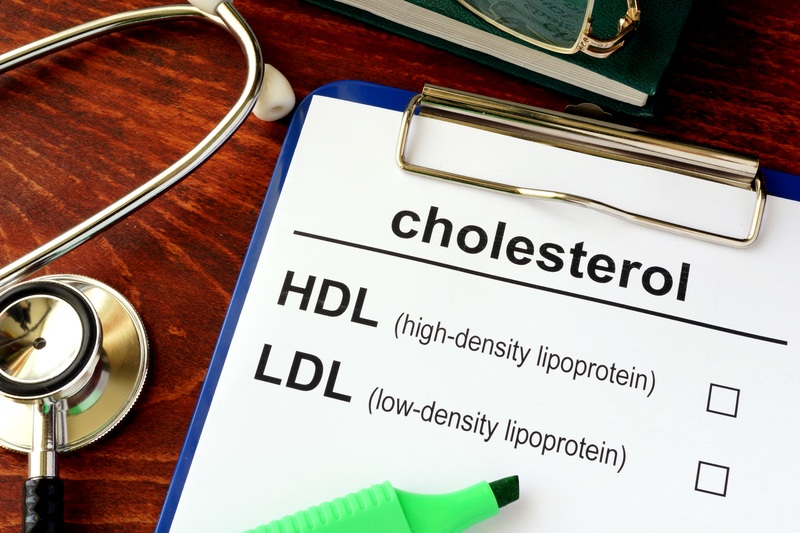So… about Berberine, ‘Nature’s Ozempic’…
Berberine has been creating quite a buzz lately. Commonly being recently referred to as “nature’s Ozempic,” Berberine is gaining popularity for its potential role in managing blood glucose levels. But is it really as effective as people claim? What are the facts and the fictions surrounding this natural compound, and how does it compare to Ozempic, a leading prescription medication for type 2 diabetes?
So let’s dive in.
But remember: this article doesn’t replace medical advice. Always consult your healthcare provider before starting any new supplements or changing your medications.
Berberine Unearthed: From Ancient Roots to Modern Medicine
Berberine, an ancient remedy revered for centuries in traditional Chinese and Ayurvedic medicine, is now making significant strides in modern medicine. Its health benefits, most notably for diabetes management, have sparked intrigue worldwide. But what exactly is this natural compound, and how did it transition from traditional to mainstream medicine? Let’s unearth the story of Berberine.
Origins and Traditional Uses
Berberine’s roots run deep in the heart of traditional medicine, dating back to over 3000 years. Extracted from the roots, bark, and stems of various plants like the Berberis shrub, Goldenseal, Oregon Grape, and Chinese Goldthread, Berberine has been a part of the healer’s arsenal in cultures worldwide.
In Chinese medicine, Berberine-rich plants were used to combat conditions such as gastrointestinal infections, diarrhea, and dysentery. Ayurvedic medicine, the traditional Indian medicinal system, also employed Berberine in managing eye infections, jaundice, wounds, and other ailments.

Berberine in Modern Medicine
Fast forward to the 21st century, and Berberine has garnered considerable attention in the scientific community. Modern studies have bolstered its reputation, particularly as a potential game-changer for people managing diabetes.
In addition to its blood glucose-lowering effects, research suggests that Berberine may have a host of other health benefits, including reducing inflammation, promoting heart health, and managing cholesterol levels. Its diverse range of benefits stems from the fact that it interacts with numerous molecular targets in the body, making Berberine one of nature’s finest multi-taskers.
Biochemistry of Berberine
Berberine’s beneficial effects are largely due to its interaction with a critical enzyme called AMP-activated protein kinase (AMPK). Sometimes referred to as the body’s ‘metabolic master switch,’ AMPK regulates various bodily functions such as lipid and glucose metabolism.
By activating AMPK, Berberine helps the body better respond to insulin, reducing insulin resistance—a common issue in type 2 diabetes. Furthermore, it inhibits the production of glucose in the liver, an action similar to that of the popular diabetes drug, metformin.
The activation of AMPK also promotes the breakdown of stored fat and inhibits the formation of new fat cells, which could explain Berberine’s potential role in weight management.
But the biochemistry of Berberine doesn’t stop there. Berberine has also demonstrated antioxidant and anti-inflammatory properties, combatting oxidative stress, a significant contributor to many chronic diseases, including diabetes, heart disease, and cancer.
Berberine’s Journey from Plant to Supplement
Harvesting Berberine is a meticulous process. The plants from which Berberine is extracted are typically harvested in autumn, with the roots dug up, cleaned, and cut into pieces. They are then boiled or soaked in alcohol to extract the bioactive compounds.
Once extracted, Berberine is usually presented as a bright yellow crystalline powder, packed into capsules for easy consumption. It’s important to note that while Berberine is naturally occurring, the extraction process is a meticulous science, ensuring the resulting supplement is both potent and safe for consumption.
The dosage of Berberine supplements often ranges from 500-1500 mg per day, divided into multiple doses to improve absorption. Berberine has a short half-life, which means it doesn’t stay in the body for very long, so regular supplementation throughout the day is typically recommended for maximum effect.

As we delve deeper into the science behind Berberine, it’s clear that this ancient remedy offers more than just a rich history—it holds potential as a versatile, natural aid in modern health management. While research is ongoing, the tale of Berberine is an exciting testament to the blend of traditional wisdom and modern science.
Berberine’s Potency: A Comprehensive Review of Evidence
Berberine’s power lies in its unique ability to interact with a critical player in our metabolic machinery, AMP-activated protein kinase (AMPK), often dubbed the “metabolic master switch.” This enzyme plays a pivotal role in energy homeostasis, maintaining the delicate balance of energy production and consumption our bodies need for optimal functionality.
One of Berberine’s key actions is its ability to activate AMPK. By acting as a stimulant, Berberine effectively turns on the master switch, promoting energy-generating processes and reducing energy-storing ones, an attribute that makes Berberine particularly effective.
Now, how does this activation of AMPK influence insulin sensitivity and glucose metabolism? It turns out, in more ways than one.
Insulin, a hormone responsible for facilitating the absorption of glucose (our body’s primary energy source) from our blood into our cells, can sometimes encounter resistance from the body’s cells, particularly in conditions like type 2 diabetes. This insulin resistance leads to less glucose uptake, resulting in high blood sugar levels.
Berberine’s AMPK-activating properties help counter this issue. By enhancing AMPK activity, Berberine promotes glucose uptake in our cells independently of insulin. In essence, Berberine creates an alternative pathway for glucose to enter the cells, bypassing the hurdle of insulin resistance. Furthermore, Berberine reduces glucose production in the liver, a process that often contributes to high blood sugar levels in diabetes.
In addition to its blood sugar-lowering effects, Berberine may also combat obesity, a frequent contributor to insulin resistance. By promoting the breakdown of stored fats and inhibiting fat accumulation, Berberine takes a multi-faceted approach to metabolic health.
Notably, these actions bear a strong resemblance to the mechanisms of some of the most commonly prescribed drugs for type 2 diabetes. Metformin, for instance, is known to activate AMPK to lower blood sugar levels.
However, Berberine stands apart due to its natural origins, being extracted from plants. This characteristic, combined with its promising potential benefits, has propelled Berberine into the spotlight as a possible support for managing diabetes and enhancing metabolic health.
As our understanding of Berberine’s interactions with the body deepens, it’s evident that its power stems from its ability to manipulate our metabolic processes at a molecular level, providing potential health benefits. While more research is warranted, especially regarding long-term effects and optimal dosages, the existing science paints an intriguing portrait of Berberine’s potential.
Berberine’s Anti-diabetic Effects
Berberine’s potential as an anti-diabetic agent has been the subject of several scientific studies. Its significant effects on lowering blood glucose levels have placed it on par with some of the most commonly prescribed pharmaceutical agents for diabetes management.
One such study that drew attention to Berberine’s potency was published in the journal Metabolism. In this study, the researchers set out to compare the hypoglycemic effect of Berberine against the standard anti-diabetic drug, metformin. Over a duration of three months, 36 adults newly diagnosed with type 2 diabetes were divided into two groups. One group received 500 mg of Berberine 2-3 times daily, while the other group received 500 mg of metformin twice daily.

At the end of the study, it was found that Berberine exhibited an equivalent effect to metformin in the regulation of glucose metabolism. Specifically, both Berberine and metformin reduced the participants’ Hemoglobin A1c (HbA1c) levels, a marker of long-term blood glucose control, by about 2%. The participants’ fasting blood glucose and postprandial (after meals) blood glucose levels also significantly decreased.
This study’s findings indicate that Berberine, when administered at a dosage of 500 mg 2-3 times daily, can effectively lower blood glucose levels to a degree similar to metformin, a first-line drug in type 2 diabetes management. However, it is important to consider that the study’s participant number was relatively small, and its duration was only three months. Therefore, larger and longer-term studies are needed to validate these results.
Building on these findings, another research article published in the Journal of Clinical Endocrinology and Metabolism presents compelling evidence on Berberine’s anti-diabetic properties. A team of Chinese scientists embarked on a 13-week randomized control trial involving 116 patients diagnosed with type 2 diabetes. The patients received 1 gram of Berberine daily. At the end of the trial, it was found that Berberine lowered fasting blood glucose by 20%, moving the patients’ blood glucose levels from diabetic to normal range.
Additionally, the Berberine group experienced a reduction in triglycerides (type of fat in blood) and insulin resistance, both of which are common issues in individuals with type 2 diabetes. Notably, this study’s strength lies in its larger participant size and controlled trial design, which adds a layer of credibility to the results.
These studies point to the impressive potential of Berberine in diabetes management. Yet, the medical and scientific communities always approach such findings with due caution. While the results are promising, understanding the precise effects, safe dosages, possible side effects, and long-term implications requires more extensive and rigorous research.
Nonetheless, these findings contribute to a growing body of evidence in favor of Berberine’s anti-diabetic effects. They lay the groundwork for future studies and trials, and they provide valuable insights for individuals and healthcare providers seeking natural ways to manage blood glucose levels and combat diabetes.
As we continue to shed light on Berberine’s properties, it is crucial to keep in mind that while it shows promise as a supportive treatment for diabetes, it should not replace any prescribed medications or professional medical advice. Instead, it may serve as a complementary agent, forming part of a comprehensive approach to managing diabetes, involving lifestyle modifications, dietary control, and prescribed medication where necessary.
Berberine vs. Prescription Medications
Berberine’s similarities with some diabetes prescription medications, especially Ozempic, are quite compelling. Ozempic, or Semaglutide, is a GLP-1 (Glucagon-Like Peptide-1) receptor agonist widely prescribed for its robust glucose-lowering effect and weight loss benefits in patients with type 2 diabetes.
Like Ozempic, Berberine influences several metabolic pathways to exert its anti-diabetic effects. Notably, both have been observed to slow gastric emptying – the process that moves food from the stomach to the small intestine. Slowing this process can help control post-meal blood sugar spikes, a common issue in individuals with diabetes.

Both Berberine and Ozempic also show potential in reducing appetite. This appetite-suppressing effect is particularly beneficial for weight management, a key aspect of diabetes control. Furthermore, as discussed earlier, Berberine enhances insulin sensitivity, a feature that Ozempic shares. By improving the body’s response to insulin, both Berberine and Oz can contribute significantly to blood glucose regulation.
But how do these two stack up in direct comparison? Limited, yet insightful studies provide a glimpse into this comparison. One such study observed a group of participants who were administered Berberine and another group that received Ozempic. Both groups demonstrated improvements in HbA1c and fasting blood sugar levels, reaffirming both Berberine and Ozempic’s effectiveness in blood sugar control.
However, the Ozempic group showed a more significant reduction in weight, a result attributable to Ozempic’s potent appetite-suppressing effects. This suggests that while Berberine holds its ground in blood sugar control, Ozempic may have the upper hand in weight management.
It’s also crucial to consider potential side effects. Berberine is generally well-tolerated, but some individuals might experience digestive discomfort, including constipation, diarrhea, or stomach upset, especially at higher doses. On the other hand, Ozempic, while effective, has been associated with more potential side effects. These may include nausea, diarrhea, vomiting, abdominal pain, decreased appetite, indigestion, and constipation. In rare cases, Ozempic can also cause more serious side effects like pancreatic inflammation.
Another essential factor is cost-effectiveness. Berberine supplements are typically less expensive than most prescription diabetes medications, including Ozempic, making it a potentially attractive option for individuals seeking a more economical alternative. However, it’s vital to consult with a healthcare provider before making any changes to a diabetes management regimen.
In sum, while Berberine and Ozempic share several mechanisms of action in the fight against diabetes, they also have distinct characteristics. The choice between the two—or a decision to use them in conjunction—should be made with a thorough understanding of these differences and in consultation with a healthcare professional. The existing body of research underscores Berberine’s potential as a supplementary agent in diabetes management, but it does not suggest that Berberine should replace any existing, doctor-prescribed treatment plans.
Berberine Research: Gut Health, Inflammation, and Beyond
Emerging research on Berberine is expanding our understanding of this potent compound, unveiling potential benefits that extend beyond its well-established role in blood sugar management. Among the intriguing new frontiers is the connection between Berberine, gut health, and diabetes.
Our gut, home to trillions of microorganisms collectively known as the gut microbiota, is increasingly recognized as a critical player in our overall health. This includes its significant role in metabolism and, by extension, diabetes. New research has begun to explore how Berberine might interact with this intricate ecosystem.
Some recent studies suggest that Berberine may favorably modulate the gut microbiota, promoting a more balanced, diverse environment. A healthier gut microbiome could potentially improve glucose metabolism and insulin sensitivity, thereby aiding in diabetes management.
However, this area of research is relatively new, and while the initial findings are promising, more comprehensive studies are needed to fully understand Berberine’s impact on gut health and its implications for diabetes.
Another burgeoning area of Berberine research lies in its potential anti-inflammatory properties. Chronic inflammation is increasingly linked to various health conditions, including diabetes. Preliminary studies indicate that Berberine may dampen inflammation, thereby potentially mitigating one of the underlying triggers of insulin resistance and diabetes. Again, more research is warranted in this area, but the early signs are encouraging.
Lastly, there’s growing interest in Berberine’s potential role in cancer prevention and treatment. Berberine has been observed to inhibit cancer cell growth and induce cancer cell death in various lab and animal studies. Some researchers speculate that Berberine’s potential anti-cancer effects might be tied to its ability to activate AMPK, which is known to promote cellular health and prevent cancerous changes. However, human trials are needed to confirm these anti-cancer effects and understand how they could be harnessed in a clinical setting.

In summary, while Berberine’s anti-diabetic effects are well-established, the emerging research paints a picture of a multifaceted compound with potential benefits spanning far beyond glucose control. As we continue to probe the depths of Berberine’s therapeutic potential, the prospects are exciting. Yet, as always, rigorous scientific validation is needed before these potential benefits can be integrated into mainstream medical practice.
The ongoing and emerging research on Berberine underscores its potential in multiple health arenas, from gut health and inflammation to cancer prevention. As the understanding of Berberine continues to deepen, it promises to shape our approach to diabetes management and overall health in the future.
Berberine Usage: Dosage, Timing, and Expectations
Successfully incorporating Berberine into your routine involves understanding the correct dosage, the optimal timing, and managing expectations. Each of these components can influence the effectiveness of this potent compound.
Optimal Dosage
The optimal dosage for Berberine can vary depending on several factors, including your specific health goals, body weight, and overall health condition. However, most studies investigating Berberine’s anti-diabetic effects have used dosages ranging from 1,000 to 1,500 milligrams per day, typically divided into multiple doses.
Before starting a Berberine regimen, it’s crucial to consult with a healthcare professional, particularly if you’re managing diabetes or any other chronic condition. Your healthcare provider can guide you in determining the most suitable dosage for your situation.
Ideal Timing and Incorporation into Daily Routine
Berberine’s primary mechanism of action involves influencing how your body processes carbohydrates. Therefore, the ideal time to take Berberine is likely with meals or shortly before. By doing so, you allow Berberine to work synergistically with your body’s natural metabolic processes, potentially maximizing its effects on blood sugar control.
Given that the recommended daily dosage is often divided into multiple doses, one practical approach could be to take Berberine with your main meals: breakfast, lunch, and dinner. This routine not only aligns with Berberine’s metabolic functions but also makes it easier to remember to take each dose.
What to Expect
As you embark on your journey with Berberine, managing expectations is key. While the research points to its potential for blood sugar control, it’s not a magic bullet. Most users report noticeable effects after a few weeks of consistent use, but responses can vary.
It’s also important to note that Berberine is best viewed as part of a holistic approach to health. Optimizing dietary habits, incorporating regular exercise, and ensuring adequate sleep are all critical for diabetes management and overall health.
Choosing Quality Berberine Supplements
With numerous Berberine supplements on the market, it’s essential to ensure that you’re choosing a high-quality product. Here are some key factors to consider:
- Purity and Potency: Look for supplements that specifically list the amount of Berberine they contain. Quality supplements should contain at least 400 to 500 mg of Berberine per serving.
- Third-Party Testing: Opt for brands that use third-party testing. This independent verification can provide assurance about the product’s quality, potency, and safety.
- Brand Reputation: Do a bit of background check on the brand. Established brands with a strong reputation are more likely to produce high-quality, reliable products.
- Other Ingredients: Check for unnecessary additives, fillers, or potential allergens. The fewer extra ingredients, the better.
Potential Side Effects
While Berberine is generally well-tolerated, it can cause digestive upset in some individuals, particularly when taken at higher dosages. If you experience side effects, it may be helpful to start with a lower dose and gradually increase as your body adapts.
Remember, while Berberine holds potential as an adjunct treatment for diabetes and other health conditions, it’s not a replacement for prescribed medication or a balanced lifestyle. Always consult your healthcare provider before beginning any new supplement regimen, especially if you have chronic health conditions or are taking other medications.
Beyond Blood Sugar: Exploring Berberine’s Multifaceted Health Benefits”
Berberine’s potential as an adjunctive treatment for diabetes is well-documented. However, the health benefits of this multifaceted alkaloid compound extend far beyond blood sugar management. Let’s delve into the research on Berberine’s impact on heart health, cholesterol levels, inflammation, and more.
Cardiovascular Health
Cardiovascular diseases remain the leading cause of death globally. With heart disease often sharing common risk factors with diabetes, such as obesity and high blood pressure, the potential benefits of Berberine for heart health have become a focus of medical research.
A study published in the International Journal of Cardiology evaluated Berberine’s effects on heart function in 156 heart failure patients. The patients who received Berberine, in addition to conventional heart failure treatment, showed a significant improvement in their symptoms and a reduction in mortality rate.
These beneficial effects on heart health may be attributed to Berberine’s ability to improve endothelial function, a key factor in cardiovascular health. By promoting the health of the endothelium, the inner lining of the blood vessels, Berberine may help combat atherosclerosis, a primary cause of heart disease.
Cholesterol and Triglyceride Levels
Maintaining healthy cholesterol levels is crucial to cardiovascular health, and here again, Berberine shows promise. It can decrease levels of low-density lipoprotein cholesterol (LDL-C, the “bad” cholesterol), total cholesterol, and triglycerides, as shown in several studies.

For instance, a study published in Metabolism found that when participants with high cholesterol levels were given 500 mg of Berberine twice daily for three months, their total cholesterol reduced by 29%, their LDL cholesterol by 25%, and their triglycerides by 35%.
Berberine can increase the number of LDL receptors in the liver, enhancing the organ’s ability to clear “bad” cholesterol from the body. This effect has been so significant that the cholesterol-lowering effect of Berberine has been compared to that of statins, the commonly prescribed drugs for lowering cholesterol, albeit without the associated side effects.
Anti-Inflammatory Properties
Chronic inflammation plays a pivotal role in the development of many diseases, including heart disease, cancer, and diabetes. Berberine has shown potent anti-inflammatory properties in numerous studies.
Research suggests that Berberine can inhibit the production of pro-inflammatory cytokines – signaling molecules that promote inflammation. It achieves this by blocking a pathway known as NF-kB, a key player in many chronic diseases.
In one study, subjects given Berberine showed significantly reduced levels of inflammatory markers. Such effects could potentially benefit conditions like arthritis, inflammatory bowel disease, and even neurodegenerative disorders like Alzheimer’s, though more research is needed in this area.
Gut Health
The health of our gut and its microbiome can have far-reaching effects on our overall health, impacting everything from digestion to mental health. Several studies suggest that Berberine can help balance the gut microbiota, fostering a more diverse and healthier gut ecosystem.
Additionally, Berberine has demonstrated antimicrobial properties, fighting harmful bacteria while leaving beneficial bacteria intact. These effects could potentially aid conditions like irritable bowel syndrome (IBS) and other gut-related issues, though more research is necessary to fully understand these relationships.
Weight Management
Given the close link between obesity and diseases like diabetes and heart disease, any compounds that can assist in weight management garner interest in the medical community. Berberine has been shown to aid weight loss in several studies.
In a 12-week study involving obese individuals, those taking Berberine lost an average of 5 pounds more than those given a placebo. Berberine’s weight loss effects may be due to improved function of fat-regulating hormones, such as insulin, leptin, and adiponectin.

In conclusion, Berberine’s potential health benefits extend far beyond its well-documented role in blood sugar management. Its positive impact on heart health, cholesterol levels, inflammation, gut health, and weight management make it a promising area of research in the quest for compounds that support holistic health. As always, it’s essential to consult a healthcare provider before starting any new supplement regimen.
Embracing the Potential and Navigating the Challenges of Berberine
The therapeutic potential of Berberine, a bioactive compound derived from various plants, extends far beyond its traditional applications. This comprehensive exploration of Berberine has not only underscored its potential in managing diabetes by improving insulin sensitivity and lowering blood glucose levels, but it has also illuminated the vast array of other health benefits Berberine may offer, including its impact on heart health, cholesterol levels, and inflammation.
The scientific research presented indicates that Berberine can be a potent ally in the fight against diabetes, potentially rivaling even prescription medications like Ozempic. However, as with any therapeutic approach, it is crucial to remember that every individual’s body may react differently. The various personal testimonials and stories underscore this point, demonstrating a range of experiences and outcomes.
Despite the promising results from the research discussed, the landscape of Berberine’s clinical application is still emerging. Ongoing and recently published studies indicate exciting areas of potential for this natural compound, heralding a bright future in diabetes management and overall health improvement.
It is important to keep in mind that while Berberine offers many potential benefits, there can be possible side effects and interactions with other medications or supplements. Certain individuals, including pregnant women and those with specific health conditions, should exercise caution. Ensuring the safe use of Berberine necessitates understanding the recommended dosage and timing, the significance of product quality, and how to seamlessly incorporate it into one’s daily routine.
As Berberine continues to gain recognition in the realm of health and wellness, the emphasis must remain on conducting robust, rigorous research. More than ever, the focus should be on educating patients about the benefits and possible risks of integrating supplements like Berberine into their health routines.
Ultimately, the story of Berberine is one of the potential transformative power of natural compounds in addressing health concerns. With both anecdotal and scientific evidence supporting its efficacy, Berberine represents an exciting frontier in holistic, patient-focused care. As we continue to explore the implications of this potent compound, we are given a powerful reminder of the complex interplay between nature, health, and human resilience.



